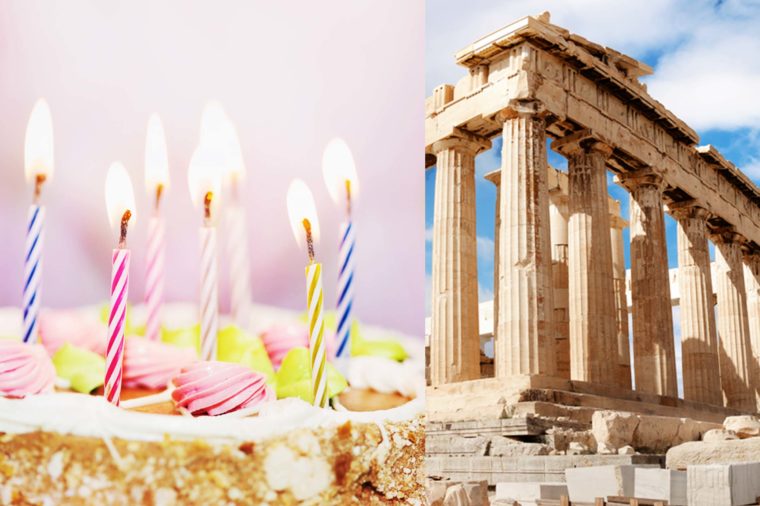Here's Why You Should Thank the Ancient Greeks for Your Birthday Cake
White, marble, chocolate, German chocolate, ice cream: There are hundreds of types of birthday cake in the world, each beautiful in its own sugary way. Odds are, you’ve indulged in one during at least one (hopefully all) of your birthday parties. But in between delicious bites of cake and frosting, have you ever stopped and wondered, “Why am I eating this? What makes this dessert fit to commemorate the day of my birth?”

It’s because you are as important and beloved as the gods. Kind of.
The ancient Egyptians are credited with “inventing” the celebration of birthdays. They believed when pharaohs were crowned, they became gods, so their coronation day was a pretty big deal. That was their “birth” as a god.
Ancient Greeks borrowed the tradition, but rightfully realized that a dessert would make the celebration all the more meaningful. So they baked moon-shaped cakes to offer up to Artemis, goddess of the moon, as tribute. They decorated them with lit candles to make the cakes shine like the moon. Hence, the reason we light our birthday cakes on fire.
Modern birthday parties are said to get their roots from the 18th century German celebration “Kinderfeste.” On the morning of a child’s birthday, he or she would receive a cake with lighted candles that added up to the kid’s age, plus one. This extra candle was called the “light of life,” representing the hope of another full year lived.
And then, torture—because no one could eat the cake until after dinner. The family replaced the candles as they burned out throughout the day. Finally, when the moment came, the birthday child would make a wish, try to blow out all the candles in one breath, and dig in. (Sorry to break it to you, but you’ve probably been cutting cake wrong your whole life.) Like modern tradition, the birthday girl or boy wouldn’t tell anyone the wish so it would come true.
Since the ingredients to make cakes were pretty expensive, this birthday custom didn’t become popular until the Industrial Revolution. More ingredients were available, which made them cheaper, and bakeries even started selling pre-baked cakes.